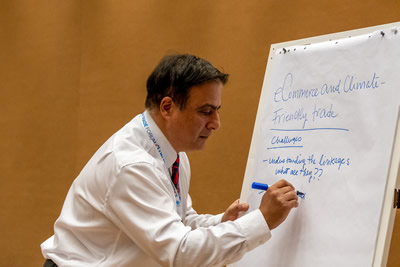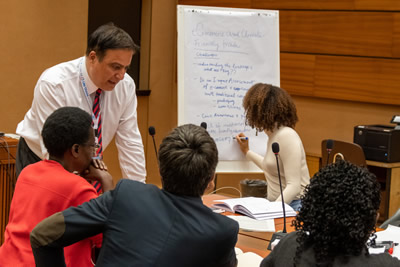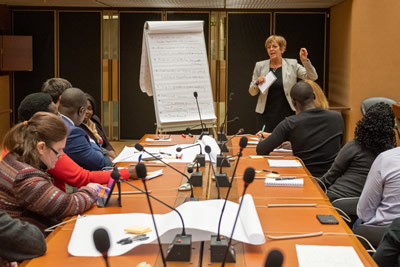A room in the Palais des Nations in Geneva, Switzerland, was abuzz on 7 October as civil society groups and UNCTAD met to discuss trade and climate change for the third edition of the organization’s HiveTalks.
The event, which brought together two dozen civil society representatives and UNCTAD experts, took the form of several rounds of moderated brainstorming on how trade could be a driver of climate action, and what commerce would look like in a future that is 2 degrees Celsius warmer.
Participants circulated between groups to “cross-pollinate” new ideas and take advantage of the collective intelligence in the room – the ways bees work in a hive.
“Ideas are always more innovative when they come from a group’s diverse experiences and expertise. That’s the beauty of the HiveTalks model,” UNCTAD Deputy Secretary-General Isabelle Durant said, adding that the methodology forces organizations to break from the traditional panel set-up.

“Participants are reluctant at first because it’s a new way of working,” she said. “But once the process gets going, the energy and creativity comes naturally.”
The different rounds of discussion were led by UNCTAD experts Claudia Roethlisberger from the Africa and least developed countries division, Martine Julsaint from the technology and logistics division, and three members of the organization’s trade division: David Vivas, Jeanelle Clarke and Robert Hamwey.
The topics were “Consumer choices and climate-friendly trade”, “Green tech and climate-friendly trade” and “E-commerce and climate-friendly trade”.
Ms. Durant said she would reflect on the recommendations and see how UNCTAD could use them to enrich its work on trade and climate change.




